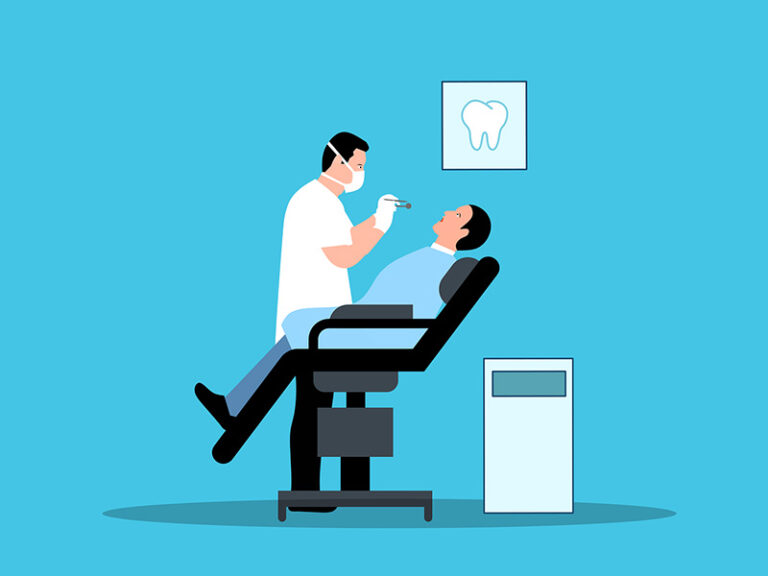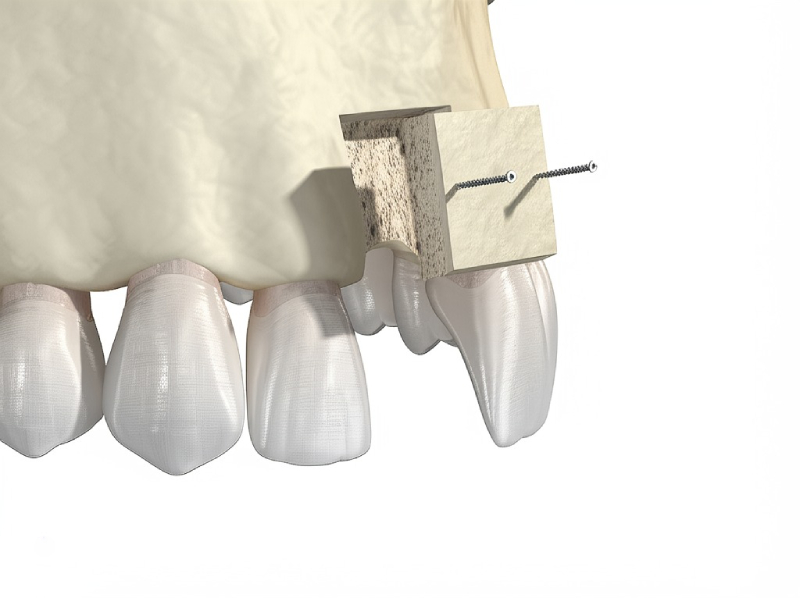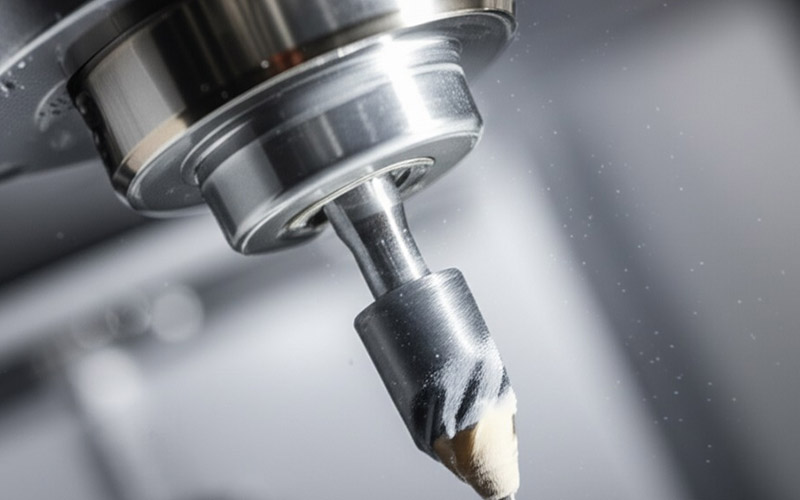
How Dental Labs Help You Exceed Patient Expectations: A Simple Guide for Patients
That great feeling when you finally see your new smile in the dentist’s mirror—maybe after getting a crown, whiter veneers, or a new tooth you can count on. You want it to look and feel real. You want something strong, comfortable, and nice to look at. But did you know that making these wishes come true often depends on how well your dentist works with a dental lab behind the scenes?
Most people don’t know much about dental labs. You visit the dentist, maybe get an impression or a scan, and then—at your next visit—your dentist shows up with a shiny new crown, bridge, or even a full set of teeth. What happens between those visits? And what does this mean for you as a patient? Can the right dental lab really change your comfort, results, and happiness?
In this guide, I’ll show you how dental labs work, why they matter for your health and smile, and what you should know to get the best out of your dental care. Whether you’re curious (that’s great!) or about to have some dental work, you’ll leave with clear answers and more confidence at your next appointment.
Table of Contents
What Is a Dental Lab, and Why Does It Matter?
Let’s get started at the beginning. A dental lab is a workshop where trained people called dental technicians make custom dental parts—like crowns (to cover a hurt tooth), bridges (to fill a gap), false teeth, veneers, retainers, night guards, and more.
Why doesn’t your dentist make these in their own office? It’s a bit like designing special clothes. Your dentist is like the designer who measures you and talks about what you want, but the real making usually needs special tools, materials, and know-how that you find in a lab. Some dental offices have their own labs, but most send your case to a lab somewhere else. Either way, the lab workers are like the real “tailors” of your new smile.
Why does this matter for you? Because the quality of what comes out of the dental lab changes how well your crown looks, fits, and how long it lasts. A good lab can make a crown that looks just like your own teeth—a bad one could mean something uncomfortable, awkward-looking, or that doesn’t last.
How a Good Dental Lab Team Makes Better Results and Happier Patients
You might not meet the people in the lab, but their skill and the way the lab works are part of every step you experience:
1. Accuracy and Predictable Results
Modern labs use cool tech—like computer-driven cutting machines, 3D printers, and tiny scanners that take pictures of your teeth instead of those yucky trays. This means your new crown or bridge fits better. A better fit means less time in the dentist chair and fewer trips back for fixes.
Example: Say you order a dress online and use a scanner to give your exact size. It’ll fit much better and you’re less likely to need last-minute changes. Same thing with dental work made with digital tools.
2. Strong, Long-Lasting Results
Labs use different stuff: strong white materials like zirconia, nice-looking porcelain, different metals, and so on. The best lab will choose or make your crown with the material that’s right for you—balancing looks, strength, and comfort.
Fun fact: Most patients these days get crowns made from strong, tooth-colored ceramics, such as zirconia or E.max, because they look real and last a long time.
3. Looks That Make You Smile
The top labs don’t just aim for something that “works.” They want it to look right, too. That means getting the shape, color, and shine just right, matching the nearby teeth. If you worry about your new crown standing out, relax—with the right lab, your new tooth can blend right in.
For tricky smile repairs, some labs offer “test runs” of your new teeth so you can get a quick look before you get the final version. It’s like taking your new smile for a spin.
4. Comfort and Usefulness You Can Count On
A skilled lab makes sure the crown isn’t too tall, doesn’t pinch your gums, and lets you eat, talk, and smile like usual. If they do it right the first time, you won’t need lots of changes or more visits.
Anecdote: Many people say a well-made crown feels so normal, they can’t remember which tooth it is. That means the dentist and lab did a great job.
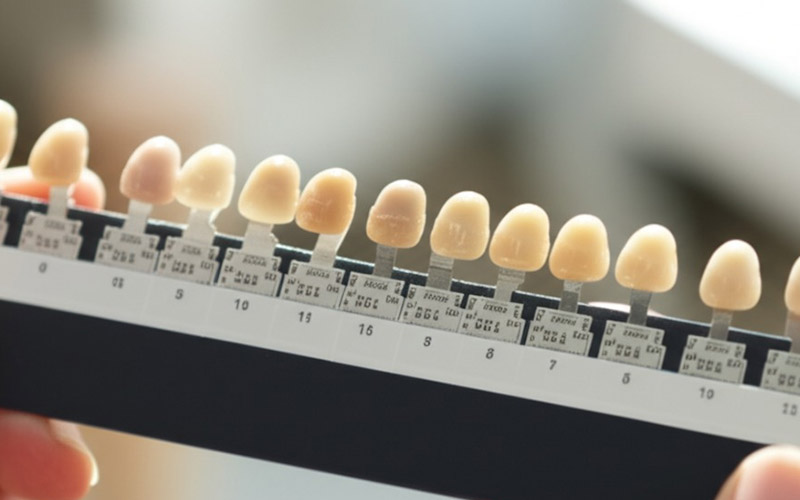
5. Saves Time, Worry, and Money
When lab work is done right, you skip extra dental visits for tweaks or new crowns. Fewer fixes means fewer surprise bills and less stress. Surveys show 85% of people say the look, feel, and how long dental work lasts all matter a lot to them.
Step-By-Step: How Your Dental Work Is Made—And Where the Lab Comes In
Let’s walk through the process, from your first visit to the dentist to the day you walk home with your new crown, bridge, or false tooth.
1. First Visit: Checkup and Planning
The dentist looks at your tooth (or teeth), may take X-rays, and talks about your choices. If a crown, bridge, or custom repair is needed, they’ll shape your tooth and take an impression—either the sticky putty kind or a quick scan with a small camera-wand.
2. Sending Info to the Dental Lab
That impression or scan—along with your bite, the color of your teeth, maybe even some photos—get sent to the lab. If the office has its own lab, things can go even faster.
3. What the Lab Does
At the lab, technicians use your information to create something that fits perfectly. Depending on your case, they’ll do things like:
- 3D computer design: For exact fits, especially for fake teeth or tricky bridges.
- Hand-work for color and shine: So it looks natural.
- Custom color matching: To get your tooth color just right.
- Quality checks: At different points, to catch any mistakes.
This can take anywhere from a few days to two weeks, depending on your case and the lab’s schedule.
4. Final Fit and Changes
When it comes back, your dentist tries it in your mouth. With luck, it fits great. If it needs a touch-up, your dentist can reach out to the lab—sometimes with photos or even a video call.
5. Done! Now What?
You walk out with your new crown, bridge, or teeth—ready to eat, talk, and smile. Just take care of them at home (like your regular teeth) to help them last.
At-Home Tips: What You Can Do to Help Make Things Go Well
You have an important part! Here’s how you can help get the best results:
- Be Honest at Appointments: Tell your dentist if you grind your teeth, chew ice, or have any worries about the look or feel.
- Pay Attention to Color Matching: If your dentist asks about the shade of your teeth, make sure you’re happy with their pick. If you want to whiten your teeth, do it before the lab finishes your new tooth.
- Keep Your Mouth Clean: Brush your teeth and gums well—before and after your procedure. Swollen or infected gums can make things harder.
- Ask Questions: Don’t be shy. If you’re worried something will look fake or not last, ask your dentist how they work with the lab to make it right for you.
- Follow Aftercare Advice: After you get your new crown or device, follow guidelines for eating, cleaning, and checkups.
Your input helps your dentist and the lab team deliver what you want.
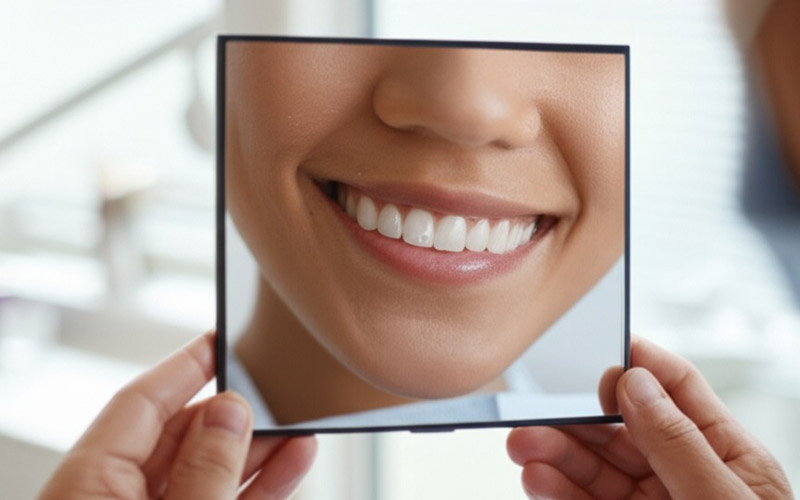
When to Ask Your Dentist About Their Lab—And What Will Happen
You might wonder, “Should I ask my dentist about their lab?” Yes, especially if you feel unsure! Great dental offices are happy to talk about their lab and how they work together to get the best results.
You can ask things like:
- Where is your lab—nearby, in-house, or far away?
- What materials does the lab use, and are they right for me?
- Does the lab use digital or regular impressions? Which works best in my case?
- How do you and the lab make sure my new tooth or denture will look and fit well?
- If I don’t like how my new tooth feels, what happens next?
These aren’t just “extra” questions—they help you feel sure about your health, comfort, and appearance.
Who Benefits Most? Finding the Right Fit for Every Patient
Dental lab work is a common part of treatment for many patients, like:
- Anyone Needing a Crown or Bridge: From tooth decay, an accident, or fixing a tooth after a root canal.
- People Getting Dental Implants: The lab builds the tooth part that goes on top.
- People with Dentures: Partial or full false teeth made by skilled labs look better and feel better.
- Those Getting Cosmetic Treatments: Veneers, full smile updates, fillings that match teeth.
- People Using Retainers or Braces: All these need a perfect fit to work right.
Some dental work doesn’t need a lab—like quick fillings, repairs, or fixes your dentist can do right at the office. If you have any mouth problems like gum disease, those need to get sorted first before you get lab-made dental work.
Quick Takeaways and Next Steps (Your Healthy Smile Checklist!)
Here’s what to remember:
- Dentist-lab teamwork is key. Your smile depends on it.
- New tech like CAD/CAM and 3D printing means better, faster, comfier results.
- Good materials and skilled lab workers make crowns and dentures that look and feel real.
- Good communication—between you, the dentist, and lab—means less trouble and quicker fixes.
- Don’t be afraid to ask about the lab.
- A good dentist-lab match saves time, money, and stress for everyone.
- Your part matters, too—by sharing concerns, keeping your gums healthy, and following instructions.
If you’re planning work or want to feel ready for your next dentist visit:
- Talk to your dentist: “Can you tell me more about the lab you use and how it helps my treatment?”
- Be clear about what matters most to you: Is it looks, strength, comfort, or speed?
- Ask for examples or before-and-after photos of work your dentist did with their lab.
- Keep up with checkups and cleanings so your dental work lasts as long as possible.
Great smiles don’t just happen—they’re the result of people, teamwork, tools, and YOU playing your part.
Frequently Asked Questions
Is there a difference between local and foreign dental labs?
Yes. Local labs can make things faster, talk more closely with your dentist, and sometimes give better quality because they know you better. Labs overseas may be cheaper, but different rules, materials, or shipping delays can make things tricky. Always ask your dentist which lab they use and why.
How long does it take to get a crown or denture from the lab?
Some crowns are done in a few days with digital tools; trickier cases might take one to two weeks. Your dentist will tell you the plan for your own case.
Does insurance affect my lab-made dental work options?
Yes and no. Insurance might pay for basic crowns or dentures, but you may need to pay extra for special materials or better-looking results. Talk with your dentist first about options, then check with your insurance.
Is there a warranty or guarantee for lab-made dental work?
Many labs back their work for a set time—often a year or more. Ask your dentist about any guarantee for your new tooth or denture.
Closing Thoughts
The dental lab might work in the background, but their results have a big impact on your looks, comfort, and confidence. You deserve results that are more than just “okay”—you should expect great care every step. Next time you’re in the dental chair, remember—you can ask questions, learn more, and expect care made just for you.
A healthy, happy smile comes from working together—between you, your dentist, and the people at the dental lab.
If you’re due for dental work or have questions about lab work, talk with your dental team anytime. You and your team can make your smile better than you expected.
If you want to talk about dental options or have more questions about lab work, our team is here—contact us anytime for a friendly chat with no pressure. Your best smile might be closer than you think.


